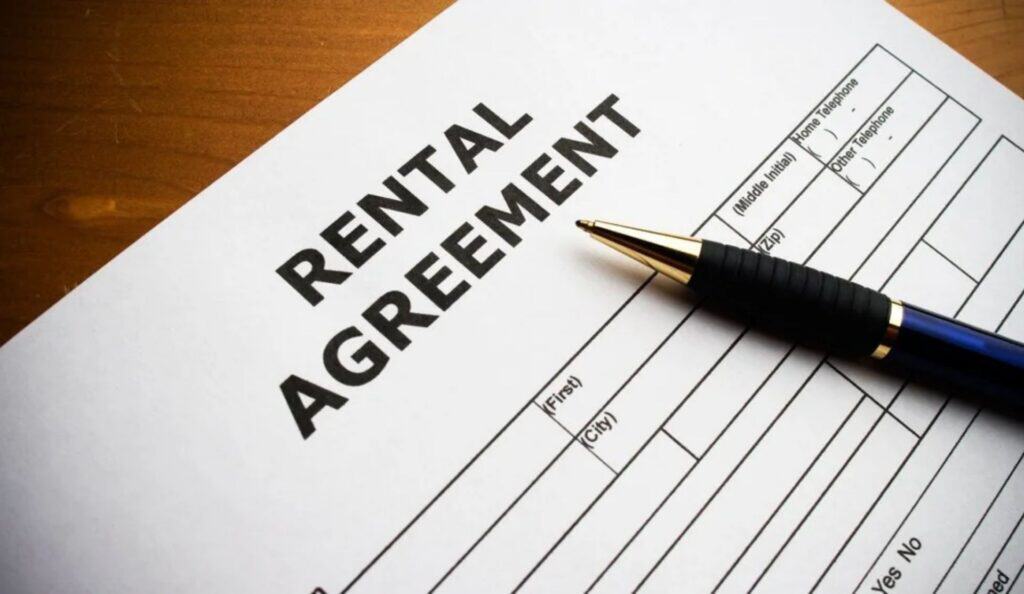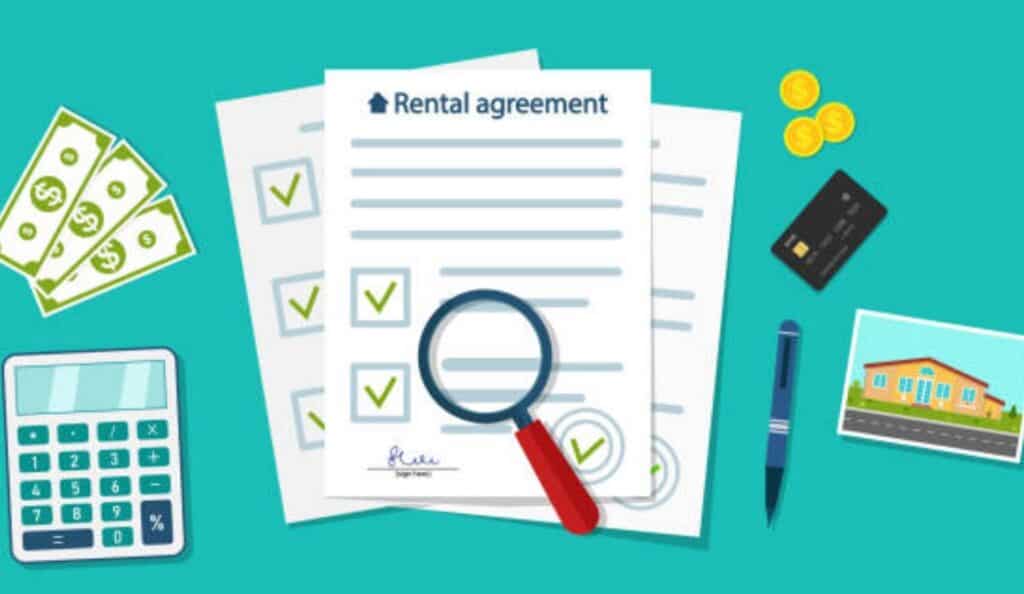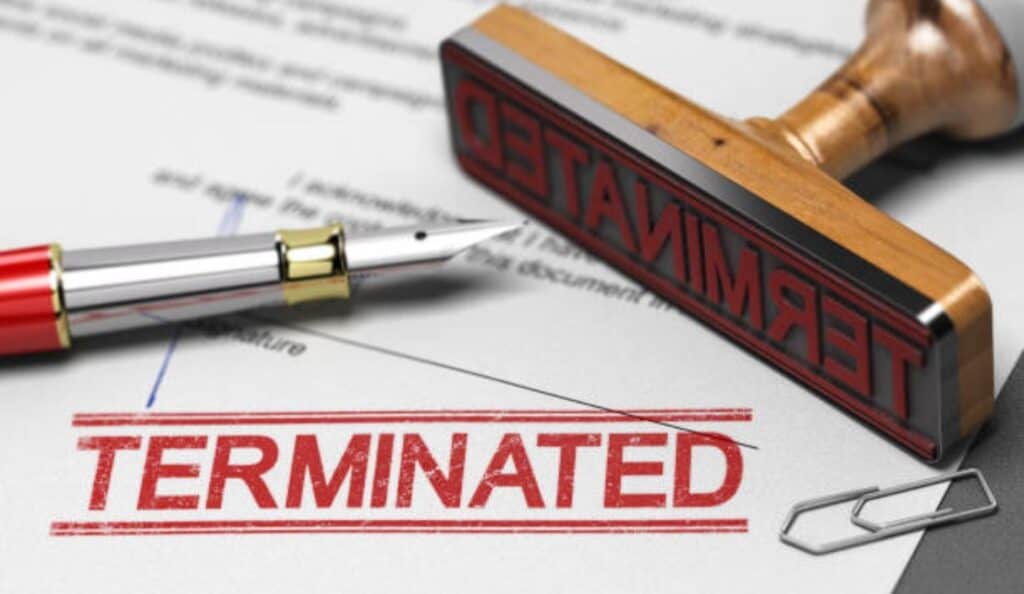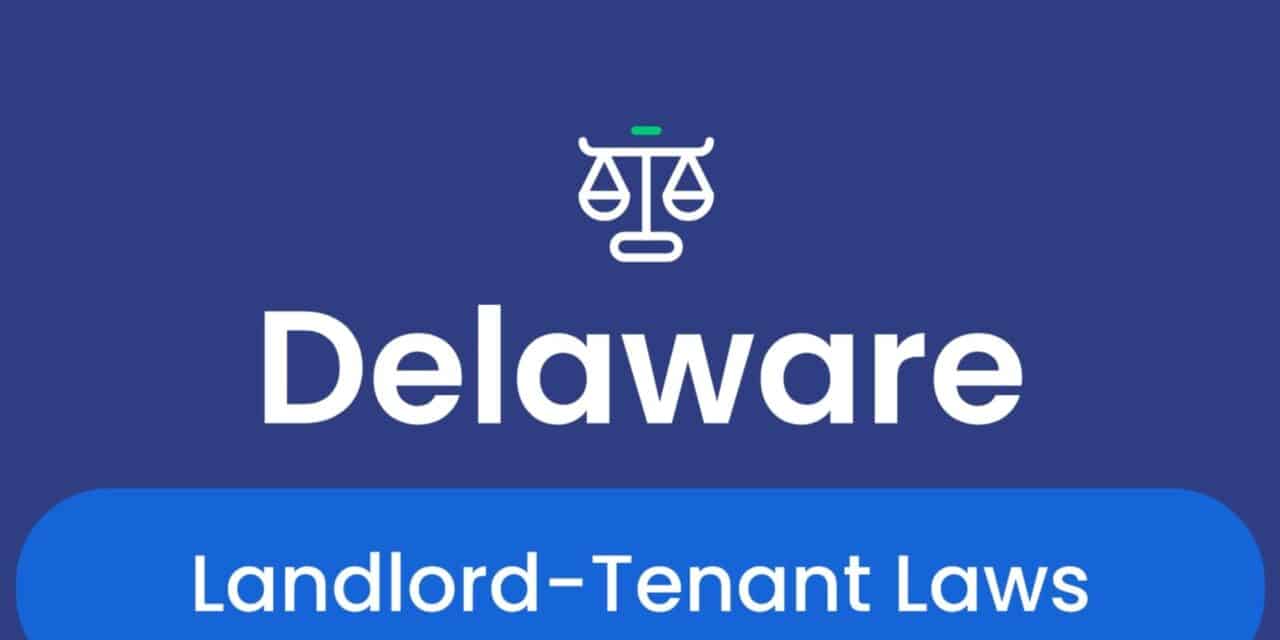For landlords and tenants in Delaware, the state has laws available to have a positive landlord/tenant experience. These laws establish key guidelines for lease agreements. This is a way for both landlords and tenants to agree on terms for renting out the property.
While not all rental agreements in Delaware are the same, ultimately, knowing the rights of both landlords and tenants can also help to prevent issues down the line. Because there is no property tax in Delaware, living costs are low and the location is good and it is easier to find tenants, Delaware is a common state for property investors. In different states, rental laws are constantly changing.
Overview Of The Delaware Tenant-Landlord Law

Delaware tenant-landlord law is important for fair rental agreements. Tenants and landlords have rights and obligations under the Delaware Residential Landlord-Tenant Code. Tenants deserve to live somewhere safe and clean, and landlords must keep their homes safe and respect tenants’ need for privacy, giving them 48 hours’ notice before coming in.
Landlords have to make repairs in a timely manner and abide by anti-discrimination laws. They also must have written rental agreements that clarify the rules of the rental. These agreements should be abided by both tenants and landlords and not following these agreements could lead to legal problems. Delaware’s laws also contain solutions, lend themselves to mediation, and include stringent rules of eviction.
Definitions and Lease Agreement Types
Rental Lease Agreement
A Delaware Rental Lease Agreement is a legal contract between a landlord and their tenant to rent out residential or commercial property. These contracts usually deal with the terms of private houses or flats.
Commercial Lease Agreement
While commercial leasing agreements apply to premises used for the purposes of doing business. A month-to-month lease provides the most flexible option for tenants, as these agreements can be renewed or ended on a monthly basis, pending specific notice periods.
Laws on Rental Agreements
The Del. Code (Title 25) is where landlords find Delaware’s rental laws for landlords and tenants, published by the Attorney General’s Office. For one-year-and-over agreements, it is advisable to have a written agreement. With short-term leases, a verbal agreement is fine. The lease agreement should also have the price of the property, information on the tenant, and the landlord, rules about rent payments, how either party can break the lease, details about the security deposit, and who is responsible for repairs and utility bills. However, you will need to read the code to understand the rental laws in this state.
Landlord and Tenant Rights and Obligations

Landlord Rights
Delaware has straightforward and equitable landlord/tenant laws. The Del. Residential Landlord-Tenant Rental laws allow landlords to timely request rent payments, collect security deposits for damages exceeding normal wear and tear, and pursue an eviction claim if a tenant violates lease terms.
Landlords Obligation
A rental agreement may not interfere with rights or legal options, permit rulings on claims, restrict the landlord’s liability, or force a cat to be declawed as part of a condition. Any rule that is not allowed is automatically invalid. If a landlord attempts to enforce these incorrect regulations, the real estate attorney can sue for 3 months of rent, plus court costs, but won’t get lawyer fees. A landlord also cannot require that a cat be declawed to make the arrangement.
Tenants’ Rights
In Delaware, renters can look for a decent place to live that follows local rules. If something needs fixing, the landlord has to know about it in writing. If the renter doesn’t tell the landlord in time, the renter might not be able to take other action.
Tenant’s Obligation and Responsibility
The Delaware code requires tenants to keep their rental units in good shape. This means checking the electrical, plumbing, and sanitation systems, and making sure appliances are working properly. Tenants also have to pay rent on time, maintain cleanliness, do small repair jobs, and avoid bothering the neighbors. They also have to follow all the rules in their lease and the Delaware code.
Eviction Rights
Delaware’s eviction process is designed to be beneficial to landlords and tenants alike. Landlords can issue a 5-day notice to pay rent or a 7-day notice to address issues or vacate premises. They’re allowed to contest an eviction in court and receive legal assistance if they believe the way they are being evicted is unfair or if their rights are being violated.
Consumer Protection Unit
Delaware also has resources for landlord-tenant issues, for example, the Consumer Protection Unit and the Attorney General’s Office for complaints. Landlords and tenants alike should be well aware of their rights and responsibilities and utilize help when necessary.
Maintenance of Rental Property
In Delaware, landlords are required to have a good property management system by keeping their rental properties safe and liveable according to local housing rules and fixing any structural issues. They also need to deal with pest issues and provide important services like heating, air conditioning, and hot water.
The law requires that landlords install and maintain smoke and carbon monoxide detectors to protect tenants. They should also ensure exits are clear and rectify health hazards like mold and lead paint. It is significant for obeying the laws and satisfying tenants to understand these obligations.
Criminal Screening
City or county rules allow landlords to review applicants’ criminal records, but there’s no state law on the issue. However, landlords should proceed with caution and fairness even if local laws permit this action. If they discriminate against applicants on the basis of race, they could run into trouble.
Landlords may only reject applicants for past crimes that are directly related to renting the property. Though criminal records are not a protected category under HUD laws, refusing to rent due to a criminal record could give rise to a discrimination claim.
But if the background check uncovers serious crimes, like drug manufacturing, murder, or stalking, landlords can deny the application. Landlords must have clear and just guidelines to avoid discrimination. HUD states they cannot inquire about arrests only convictions. Some localities may have additional laws that supplement this restriction during tenant screening.
Anti-Discrimination Laws

Just as landlords in the state must comply with federal, state, and local fair housing laws, the Delaware Equal Rights to Housing Act specifically prohibits discrimination in a rental property. This law prohibits discrimination on the basis of race, color, source of income, national origin, religion, sex, sexual orientation, gender identity, marital status, disability, family status, and age.
Discrimination may include refusing to rent or offer different rent terms, making housing difficult to obtain, or providing false information about availability. Landlords cannot advertise or say they prefer certain groups based on these protected classes.
Moreover, fraud and abuse of tenant rights can land landlords in hot water, but they are best avoided by following fair housing laws as to all actions taken by the landlord, including behavior in setting rent, charging fees, or deciding who to grant access to facilities, processing requests for help or otherwise ending leases. Landlords must also permit service and support animals for tenants with disabilities and must consider requests for reasonable modifications.
Rent Payments

The landlord may request monthly rent payments at the beginning of every month, and there is no maximum rent charged. If a landlord wishes to increase their rent, they have to notify the tenant 60 days ahead of time; the tenant then has 15 days to respond. If the tenant says no or doesn’t respond within 15 days, they must vacate within 60 days. Landlords are allowed to assess late fees, but they cannot exceed 5% of the rent and cannot be imposed until 5 days after payment is late.
Protocols For Rent Payments
In Delaware, you are obligated to pay rent on the date specified in the lease. Landlords are not required to give additional time for missed payments. Landlords issue a five-day notice for unpaid rent or begin the eviction process. Tenants should be aware of these rules to protect their homes. Online payment may be available, but landlords can’t demand any large payments that aren’t specified in the lease. Landlords and tenants alike should keep records of payments.
Security Deposits
A security deposit is funds that safeguard landlords from damages to their properties or unpaid bills. It cannot be more than one month, and landlords are allowed to request additional funds if a tenant has a pet. Landlords have 20 days after a tenant moves out to return the security deposit, or they could owe double the amount they didn’t return.
Landlords may retain parts of the deposit for unpaid rent or damages. They are required to provide a list of what they removed. In Delaware, rules state that the deposit for an unfurnished rental cannot exceed one month’s rent. Valid reasons for keeping part of the deposit include unpaid rent, late fees, and damages that are more than normal wear and tear. Costs for breaking the lease early can also be taken out.
Subsequently, tenants should be aware of their rights when it comes to receiving their deposit back, and landlords need to adhere to the rules of timing. Knowing these details makes renting easier.
Additional Fees
Landlords in Delaware are allowed to impose charges such as application fees and late fees. Application fees are non-refundable and cover the processing of rental applications. Late fees are charged when rent is not paid on time.
These charges should be prominently disclosed in leasing documents. If a tenant’s bank fails to honor a check due to insufficient funds, a landlord can charge a returned check fee. Landlords and tenants alike should look for these fees in lease agreements to ensure they’re following the rules and keeping the rental process fair.
Landlords in Delaware, for example, charge fees for:
Background Checks
Tenant background checks, such as credit checks, with no limit. These fees would need to be reasonable and proportionate to the landlord’s actual costs.
Pet Fees
Landlords are also allowed to charge pet fees if tenants want to keep pets, a one-time pet deposit or monthly pet rent. There are no limits on these fees, but they should also be fair.
Late Fees
Landlords can charge late fees if rent is paid late, but these fees must be a reasonable estimate of the landlord’s actual losses. Excessive late fees might not be permitted but landlords need to inform tenants about any additional costs in the lease before signing it to avoid issues later.
Termination of the Lease

The rules in Delaware for terminating a rental agreement depend on the kind of lease and the reason for the termination. For fixed-term leases, no notice is required. For month-to-month and year-to-year leases, however, at least 60 days’ notice is required. If either the landlord or the tenant seeks to terminate the lease before its expiration, they will need to provide written notice. If the tenant breaks the lease early without proper notice, the landlord may seek unpaid rent for the balance of the lease.
Moreover, for leases without an end date, Delaware law requires either the landlord or tenant to provide at least 60 days written notice to terminate the agreement. Some exceptions do exist, such as if the landlord doesn’t fix major issues that make the unit uninhabitable.
However, it’s important to give proper written notice so you don’t run into legal trouble, for both landlords and tenants. Verbal informing someone usually isn’t enough; failure to provide appropriate notice can trigger penalties or automatic lease renewals. If a tenant or landlord fails to abide by the terms of the lease, they must provide written notice to remedy the situation within a specified period. Understanding Delaware’s Lease Termination Law helps landlords and tenants to properly handle their leases.
Early Eviction
You may be able to get out of your lease early if your lease agreement provides for it, for reasons such as military service, domestic violence, or health issues. Proof of why tenants need this is required to be shown. In some cases, tenants are only required to pay fees to break the lease. Discussing these rules in advance helps prevent confusion and problems down the line. Both landlords and tenants should be aware of these regulations as they assist negotiations.
Eviction Process
In Delaware, before a landlord can evict a tenant, it must provide proper notice. The notice time varies depending on the reason like not paying rent or violating lease terms.
Tenants need to fill out the right forms and can argue against the eviction, including if they didn’t get proper notice or if they are being punished for standing up for their rights. If the court rules in favor of the landlord, a Writ of Possession is issued, and the tenant is given a certain amount of time to vacate the home. Both landlords and tenants must understand their rights and responsibilities throughout this process.
Conclusion
Delaware has laws to make renting fair and easy to understand for both landlords and tenants. Tenants have the right to safe housing, and landlords have to keep properties in good shape and follow anti-discrimination rules.
The laws cover important things like evictions, security deposits, and rent payments. Knowing the state’s rental laws and using resources like the Consumer Protection Unit can help create positive renting experiences and keep the rental market balanced in Delaware.




